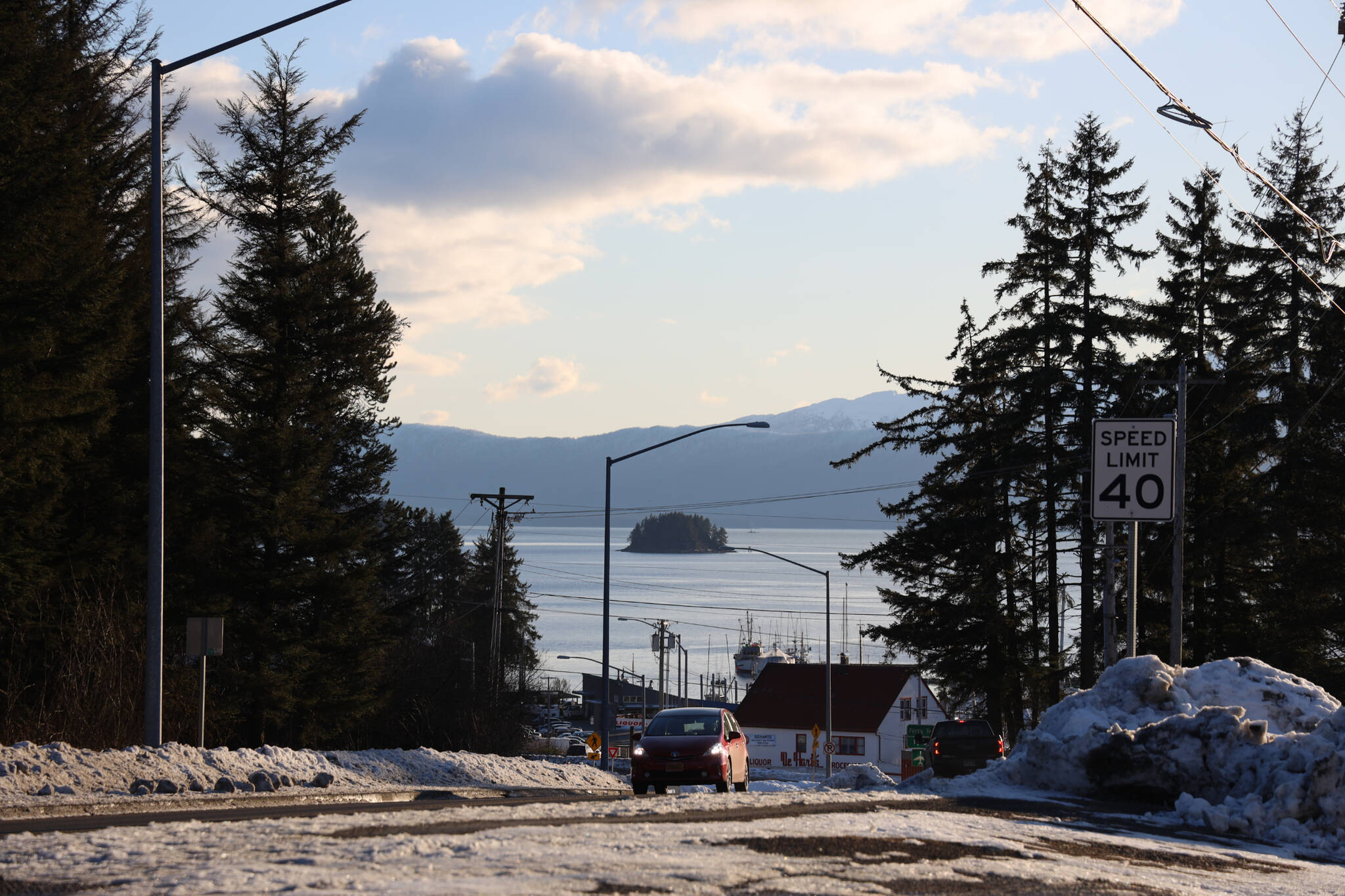Juneau’s greenhouse gas emissions and energy consumption appear to have decreased over an 11-year period despite a small increase in population, according to a recently released draft inventory report.
According to the report, when comparing the 2010 calendar year to the 2021 calendar year, the Juneau community’s energy consumption and greenhouse gas emissions decreased by 23% and 29%, respectively, even as the population saw a 2% increase. However, the report’s conclusion notes the two nonconsecutive years do not unequivocally indicate a trend.
“It looks like pretty good news,” Denise Koch, deputy director of Public Works told the Empire. “It’s nice to see the numbers are lower in 2021 than in 2010.”
The report identified the sources of Juneau’s greenhouse gas emissions as follows:
— 50% was produced by transportation including highway, marine and air travel.
— 26% was produced by buildings for heating and energy.
— 17% was produced by Kensington Mine.
— 5% waste produced by solid waste treatment.
— 2% by Hecla Greens Creek Mine.
Despite significantly decreased emissions overall when comparing 2010 to 2021, certain sectors appeared to see an increase.
According to the data, Kensington mine’s CO2 emission increased from producing 5% of the community’s current emissions in 2010 to nearly 17% in 2021.
The report suggested that the significant increase in 2021 compared to 2010 could be attributed to the mine opening that year, and likely only reflected half a year of their regular operational activities during 2010.
Marine transportation also saw around a .6% increase despite the total emissions of transportation combining air, highway and marine appear to decrease. According to the report, about 84% of marine transportation emissions are due to cruise ships.
The report was originally commissioned by the Assembly in 2021 after it was recommended by the Juneau Commission on Sustainability Advisory Board. Koch said the report’s purpose was to give the city an updated view of the community’s energy and greenhouse gas emissions to then be compared to previous studies completed in 2010 and 2007.
Koch said the report is still a draft and will continue to be refined by the city in the coming months, along with seeking feedback from residents about the findings and research methods.
According to Koch, though the three years of data available appear to show a trend of an overall decline in energy consumption and emissions in Juneau, she cautioned against making that conclusion. She said the studies currently only represent snapshots of those specific years of data, and said more consistent year-to-year data is necessary before a trend can be truly identified.
However, she said if the data from this report proves valuable to the city, there is a very good chance this report could become annual and in the coming years trends will be able to be identified.
“It’s great news — it’s just hard to say it’s a lasting trend,” she said. “If we continue to do this for a few more years, we would be able to detect trends that could then inform policy decisions.”
Steve Behnke, energy chair for Juneau Commission on Sustainability, agreed, and during a recent meeting, said he thinks the report serves as a jumping-off point for community conversations about energy efficiency and consumption from an individual and city level.
“I think this gives a really helpful big picture for the community, and it also points to some pretty interesting questions about why some of these instances occurred,” he said. “This really gives us the tools to dig into this stuff.”
He said he’s interested in exploring more about the building emissions aspect of the report and understanding what contributes to that usage and what could change in the future as more sustainable energy sources within buildings like heat pumps become more popular in the Juneau community.
• Contact reporter Clarise Larson at clarise.larson@juneauempire.com or (651)-528-1807. Follow her on Twitter at @clariselarson.

